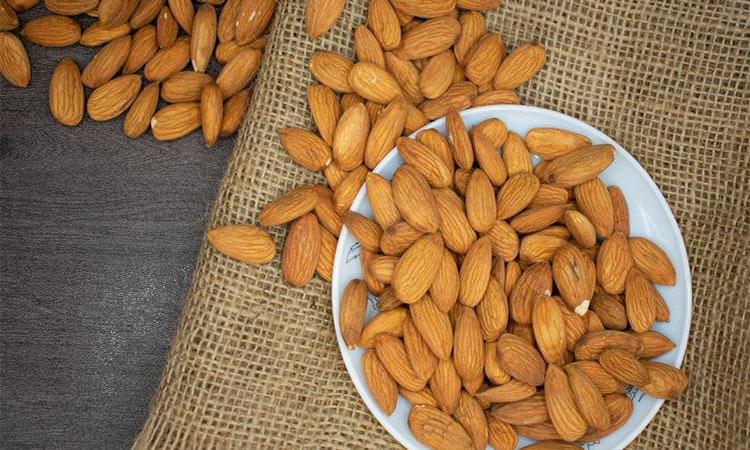Every person's body contains three active energies, according to Ayurveda. These energies control various processes, including controlling the mind, the body, and diseases you are likely to contract or the diet you ought to eat.
One of these energies is the Vata dosha, which controls bodily motion and motion-related processes. Ayurveda holds Vata accountable for our capacity for both physical & mental adaptabilities. It controls our nervous system, bones, and hearing. It is the energising force of the body and mind. Here are three lifestyle tips:
Include almonds in your diet: In general, sweet, sour, and salty foods are excellent for balancing Vata. These tastes are regarded as a medicine for correcting Vata imbalance in Ayurveda because they increase qualities of warmth, moisture, and heaviness/groundedness to encourage regular digestion and balance Vata.
For a healthy body constitution, it's generally advised to consume foods that satisfy all six tastes (sweet, sour, salty, pungent, bitter, and astringent). Almonds are one of the foods that can help balance Vata Dosha.
Also Read | Recipes for a new and versatile bean protein
Almonds are typically referred to as "Vatada," "Badam," or "Vatma" in Ayurvedic texts. They are considered "madhura," or sweet, and have "Snigdha," or unctuous properties, and are known as "Vatahara" and "Pitta kara" in terms of their action on doshas (Dosha Karma).
Almonds work best to calm the Vata dosha due to their after-digestion sweet and warming qualities. In addition, they support all seven dhatus (tissues), especially Shukra dhatu, and lubricate the skin and microcirculatory channels (reproductive tissue).
Practice Yoga: Yoga that calms the Vata dosha can balance all the doshas and provide radiant and beaming health. The asanas that are better suited for Vata balance should naturally becalming. These poses help alleviate anxiety symptoms and correct imbalances, such as bodyaches and constipation.
Also Read | Spice up your festive evenings
Some of the asanas you could practice every day include Uttanasana (Standing Forward Bend Pose), Paschimottanasana (Seated Forward Bend Pose), Balasana(Child's pose), Supta Virasana (Reclined Hero Pose), Dhanurasana (Bow Pose) and Ustrasana(Camel pose).
Adding Ashwagandha to your diet: Several naturally occurring herbs have Vata-optimisingproperties. The herb ashwagandha is renowned for its many Ayurvedic health advantages. Vata dosha imbalance is typically the cause of stress, which frequently manifests as irritability, insomnia, and fear. According to studies, by balancing Vata, taking Ashwagandha powder lessens the signs and symptoms of stress and anxiety. Ashwagandha, usually taken as a powder, can be diluted with water or warm milk and honey. Although it is always recommended to consult your ayurvedic physician for its accurate dose before consumption. This combination supports the reproductive system, builds strength, and balances Vata when taken before bed. It also promotes sound sleep patterns.


















